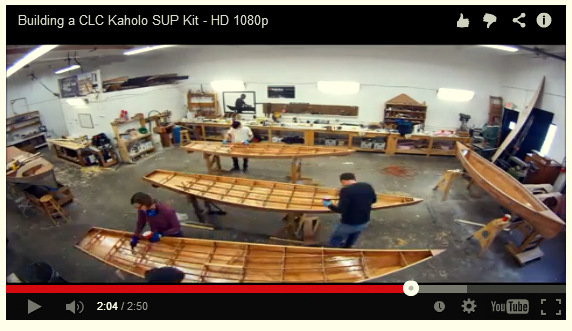Here's a beautiful 10-foot dinghy or daysailer that slots between our 7'9" Eastport Pram and the 11'7" Passagemaker Dinghy.
The Eastport and Passagemaker are "prams," meaning they have flat transoms at the bow as well as at the stern. Before talking about Tenderly, it's helpful to understand why the Eastport Pram and Passagemaker Dinghy look the way they do: It's to maximize the volume in the smallest possible footprint. If the Eastport Pram's bow came to a point instead of being squared off, it would have maybe 60% of the payload, barely enough for one adult, and 40% less stability.
We like our dinghies with proper stems (pointed bows) as much as the next sailor, as long as the trade-offs are understood.
John Harris had been mulling over a "stem-dinghy" that was both handsome and easy-to-build, and Tenderly is the result. Prototypes were built in Fall 2016 and launched over the winter.
 |
|
Build this Boat in a Class:
2024:
|
Tenderly is ten feet long, 52" wide, and will handle a 425-pound payload. The hull features graceful lapstrake planking and easily-driven lines. Stability is solid and she'll handle two adults and a child. The traditional interior includes standard scuppered inwales and optional floorboards. Rigged with a large, efficient balanced lug sail, she's sporty and responsive on all points. She also rows well with one, two, or three passengers, and moves nicely with a 2hp outboard. Wood-epoxy composite construction ensures rugged durability.
John's primary goal was to create a dinghy of classical good looks that was nevertheless quick and easy to build. Laboring over the proportions has resulted in a small boat that does not look remotely like the build-it-yourself project that it is.
"Tenderly is the culmination of 20 years of refinement of our LapStitch construction process," Harris says. "Just a few years ago, if you wanted a traditional stem dinghy that looks like a British day boat from the 1920s, you were stuck building it over a mold using complex techniques."
Instead, it's possible to assemble Tenderly's hull in about 50 hours. Total build time, including the finish, is around 120 hours.
The basic hull (all versions of which include the daggerboard trunk for sailing) weighs just over 100 pounds, making it heavier than its cousins the Eastport Pram and Passagemaker. "The weight is average for a dinghy of this size, shape, and displacement," Harris says. "And that's no accident. By increasing the beam and displacement a bit, we've made Tenderly a lot more practical as a working dinghy."
Harris explains: "There's a lower bounds for dinghy weight, under which the boats become fragile and difficult to get in and out of. Beam is one way to gain stability, and at 52" Tenderly feels solid. During photo shoots we had a lot of personnel climbing between the mothership and the dinghy, and even in choppy conditions it was safe.
"The other part of making a small boat easy to use is to contemplate the effect of weight on the boat's moment-of-inertia. Something like a 40-pound canoe has none; neither will a 40-pound dinghy. There's no magic workaround. But a 100-pound dinghy won't shoot out from under you when you step aboard with the groceries."
The combination of nice lines and ample stability results in a terrific little sailing boat. There's plenty of sprawling room for two adults or a bunch of kids. The boat is fast and stiff and in general a joy to sail. Not all builders will sail the boat, as it rows and powers with grace, but the base kits will all include the daggerboard trunk and mast step to make the conversion easy if desired.
"Spacered inwales", solid timber breasthooks, and quarter knees are standard in Tenderly kits, among other upscale features. Traditional floorboards are an option, doubtless a very popular one.
Kits are available now. The computer-cut kits are intricately detailed and designed with first-time builders in mind. Every trick we've evolved over the decades has been deployed here: tab-and-slot alignment of bulkheads, puzzle-joints, and pre-drilled holes for wire stitches.
Plans builders will have full-sized patterns for every piece in the boat. The parts-count is higher than some of our designs, so scratch-builders should be comfortable reading plans and have access to a full suite of woodworking machinery.
If you're planning to mount an outboard, consult the Tenderly Dinghy Motor Pad Installation diagram here.
Tenderly's hull design has proven so effective and adaptable that we have recently added a variation called the Lake Union Swift (née "Tenderly XP"). The Lake Union Swift is a bit more involved to build, but offers a sailing-optimized interior with side benches, a pivoting centerboard, and the option of a larger sloop rig.